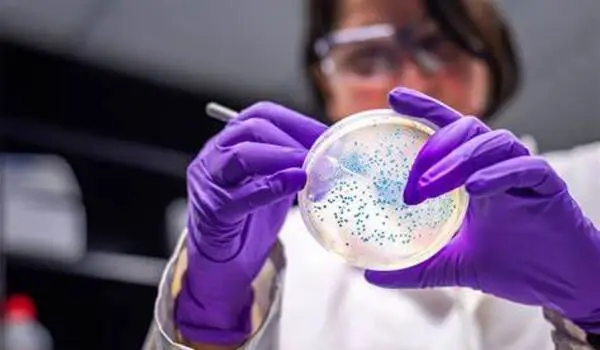Using low-cost microbes to expedite biological discovery is a growing trend in several domains, including biotechnology and environmental science. Microorganisms have numerous advantages for research and innovation due to their quick growth rates, broad metabolic capabilities, and frequently simple genetic structures.
Cornell University researchers have developed a novel bacterium that can compete economically with E. coli, a bacteria often employed as a research tool due to its capacity to make proteins, in order to undertake low-cost and scalable synthetic biological studies.
Vibrio natriegens, an affordable multiplier similar to a photocopier in a test tube, could assist labs in testing protein variants for the production of medications, synthetic fuels, and sustainable substances that combat weeds and pests. The microorganism can function successfully without the use of expensive incubators, shakers, or deep freezes and can be manufactured in hours.
The study appears in PNAS Nexus.
As scientists, we don’t often know precisely what those regulatory or molecular sequences should be to achieve our goals. So, we must test a lot of variants, and Vibrio natriegens allows researchers to scale up that process of testing.
David Specht
“It’s really easy to produce,” said lead author David Specht, a postdoctoral researcher in the lab of Buzz Barstow, assistant professor of biological and environmental engineering.
To examine proteins for medicinal cures or fuels, researchers employ a plasmid (a little piece of DNA) that serves as the instruction manual for constructing the molecular machine (a protein) of interest.
Currently, when researchers place a plasmid into E. coli, they can create many copies to test several variants.
E. coli cells help molecular biologists multiply and manipulate plasmids for protein engineering, but the process is expensive since they often purchase the bacteria from manufacturers, must keep it cold and maintain rooms of expensive equipment to sustain it. A modified E. coli, used for this purpose, is also very fragile.

“As scientists, we don’t often know precisely what those regulatory or molecular sequences should be to achieve our goals,” said Barstow. “So, we must test a lot of variants, and Vibrio natriegens allows researchers to scale up that process of testing.”
The microbe V. natriegens is not complicated, Specht said. “It’s so simple to make that someone with limited resources — like high school labs, home inventors or startup biological businesses — can do it,” he said.
Timothy Sheppard, a researcher, compared the ease of conducting synthetic and molecular studies with V. natriegens to utilizing a basic writing instrument hundreds of years old. “We’ve found nature’s pencil for cloning and conducting synthetic biology,” he went on to say.
V. natriegens is a low-cost process because it does not require capital equipment and may be performed at room temperature. V. natriegens cells grow quickly: according to the research, a transformation begun at 9 a.m. gives noticeable colonies by 5 p.m., each containing masses of proteins.
“The microbe is a radically simple solution to a hard problem,” he remarked.














